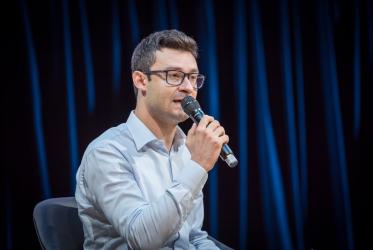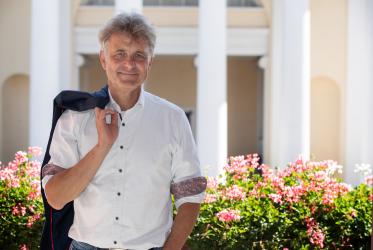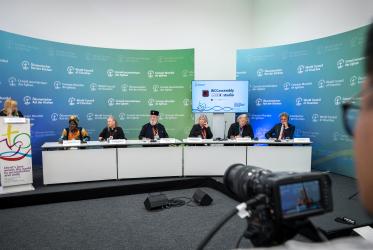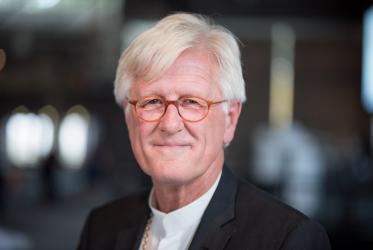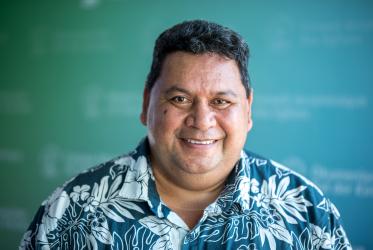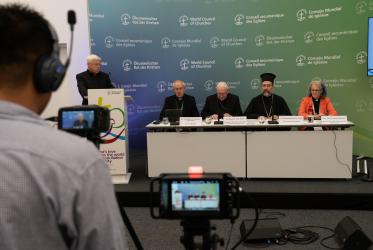Displaying 41 - 60 of 614
World’s churches converge on Germany city of Karlsruhe to pray and act
16 September 2022
Simone de Giuseppe: “I’m still working for ecumenism in Italy”
16 September 2022
When guests became citizens of Karlsruhe
12 September 2022
Bishop Dr Heinrich Bedford-Strohm reflects on new role as moderator
09 September 2022
Dear future steward
08 September 2022
Uppsala 1968: The times, they were a’changing
06 September 2022
Bible studies bring ways to learn how Christ’s love moves us
06 September 2022






